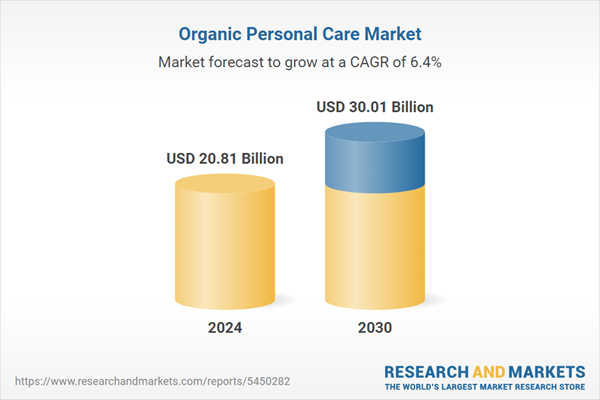Speak directly to the analyst to clarify any post sales queries you may have.
10% Free customizationThis report comes with 10% free customization, enabling you to add data that meets your specific business needs.
Key Market Drivers
Rising Consumer Awareness and Health Concerns
One of the primary drivers of the global organic personal care market is the growing awareness of the harmful effects of synthetic ingredients found in conventional beauty and personal care products. Consumers are becoming more conscious of the potential risks associated with chemicals such as parabens, sulfates, and phthalates, which have been linked to skin irritation, allergies, and long-term health issues. As a result, they are actively seeking alternatives made from natural, organic, and plant-based ingredients.Additionally, increased access to information through social media, beauty blogs, and expert reviews has educated consumers on the advantages of using organic personal care products. This awareness has led to a surge in demand for clean-label products with transparent ingredient lists, driving brands to reformulate their offerings with safer and more sustainable components. The cosmetics market in both Eastern and Western Europe has been witnessing consistent and substantial growth. Over recent years, the European market has expanded at an average annual rate of 4.1% in value. From 2018 to 2023, the market maintained steady growth, with the exception of 2020, when sales declined across most countries due to the impact of the COVID-19 pandemic.
Key Market Challenges
High Production Costs and Pricing Challenges
One of the major challenges in the global organic personal care market is the high cost of production. Sourcing organic and natural ingredients requires more stringent farming and processing methods, which are often labor-intensive and expensive. Unlike synthetic alternatives that can be mass-produced at lower costs, organic raw materials depend on factors such as climate conditions, soil quality, and sustainable harvesting practices, making their availability limited and prices volatile. Additionally, certifications such as USDA Organic, COSMOS, and Ecocert add extra costs, as companies must meet strict guidelines and undergo rigorous testing procedures.These higher production costs often translate into premium pricing for organic personal care products, making them less accessible to price-sensitive consumers. While demand is increasing, many consumers still perceive organic beauty and personal care products as luxury items rather than necessities. Competing with conventional products that offer similar benefits at a lower price point remains a challenge for organic brands. To address this issue, companies must focus on cost-efficient manufacturing processes, local ingredient sourcing, and innovative formulations that balance quality with affordability.
Key Market Trends
Technological Advancements in Organic Formulations
Innovation in formulation technology is transforming the organic personal care market, allowing brands to develop more effective, high-performance products while maintaining natural and organic integrity. Traditional organic products often struggled with shorter shelf life and lower efficacy compared to their synthetic counterparts, but advancements in green chemistry and biotechnology are overcoming these challenges.For example, bio-fermented ingredients, plant stem cells, and naturally derived peptides are being incorporated into skincare to enhance anti-aging, hydration, and skin-repair benefits. Natural preservatives, such as probiotics and botanical extracts, are replacing synthetic chemicals while maintaining product stability. Additionally, AI-driven research is helping brands identify new plant-based compounds that mimic the effects of synthetic actives, improving the performance of organic formulations.
Key Market Players
- L’Oréal S.A.
- Oriflame Holding AG
- OneKind.25 LLC (Cocokind)
- The Hain Celestial Group, Inc.
- L'Occitane International SA
- Shea Terra Organics, LLC
- Syscom Organic World Private Limited (Organic Harvest)
- So Organic (UK) Limited
- The Organic Skin Co.
- Léa Nature Services S.A.S
Report Scope:
In this report, the Global Organic Personal Care Market has been segmented into the following categories, in addition to the industry trends which have also been detailed below:Organic Personal Care Market, By Product Type:
- Skin Care
- Hair Care
- Oral Care
- Others
Organic Personal Care Market, By Sales Channel:
- Supermarket/Hypermarket
- Specialty Stores
- Departmental Stores
- Online
- Others
Organic Personal Care Market, By Region:
- North America
- United States
- Canada
- Mexico
- Asia-Pacific
- China
- Japan
- India
- Australia
- South Korea
- Indonesia
- Europe
- France
- United Kingdom
- Italy
- Germany
- Spain
- South America
- Argentina
- Colombia
- Brazil
- Middle East & Africa
- South Africa
- Saudi Arabia
- UAE
- Turkey
Competitive Landscape
Company Profiles: Detailed analysis of the major companies present in the Global Organic Personal Care Market.Available Customizations:
With the given market data, the publisher offers customizations according to a company's specific needs. The following customization options are available for the report.Company Information
- Detailed analysis and profiling of additional market players (up to five).
This product will be delivered within 1-3 business days.
Table of Contents
Companies Mentioned
- L’Oréal S.A.
- Oriflame Holding AG
- OneKind.25 LLC (Cocokind)
- The Hain Celestial Group, Inc.
- L'Occitane International SA
- Shea Terra Organics, LLC
- Syscom Organic World Private Limited (Organic Harvest)
- So Organic (UK) Limited
- The Organic Skin Co.
- Léa Nature Services S.A.S
Table Information
| Report Attribute | Details |
|---|---|
| No. of Pages | 181 |
| Published | March 2025 |
| Forecast Period | 2024 - 2030 |
| Estimated Market Value ( USD | $ 20.81 Billion |
| Forecasted Market Value ( USD | $ 30.01 Billion |
| Compound Annual Growth Rate | 6.3% |
| Regions Covered | Global |
| No. of Companies Mentioned | 10 |









